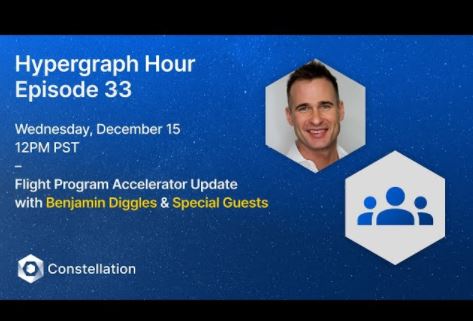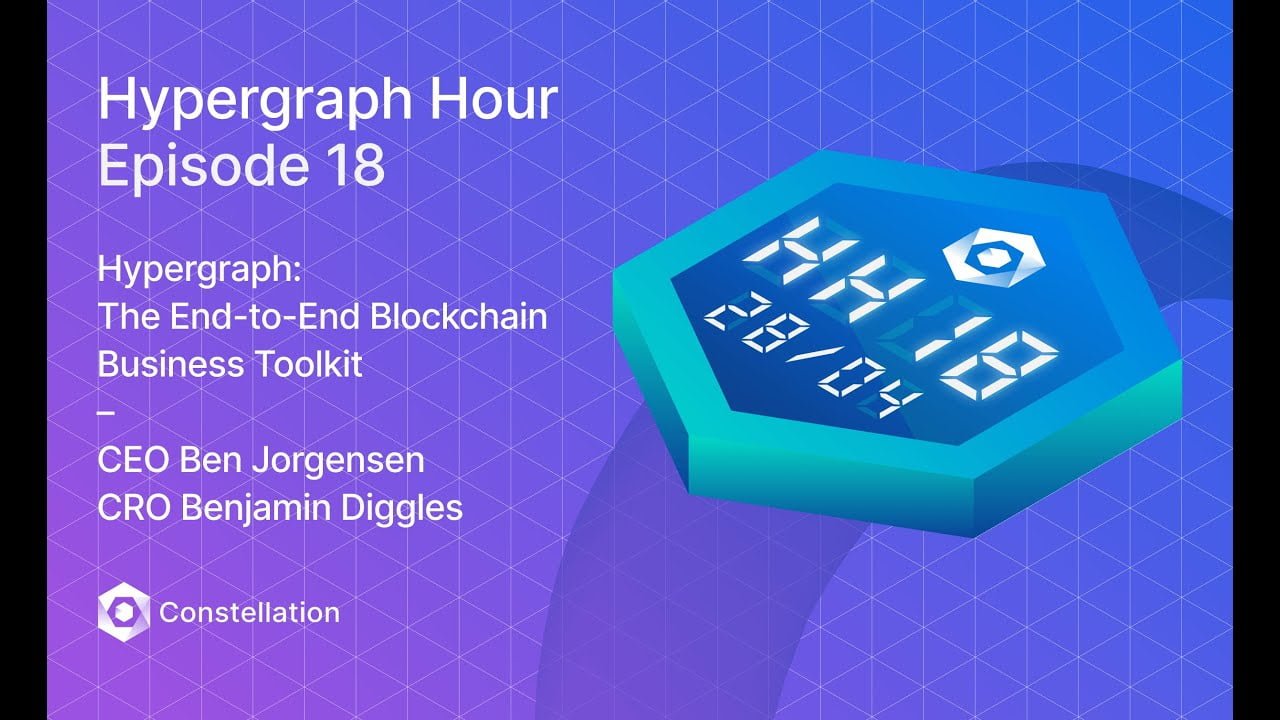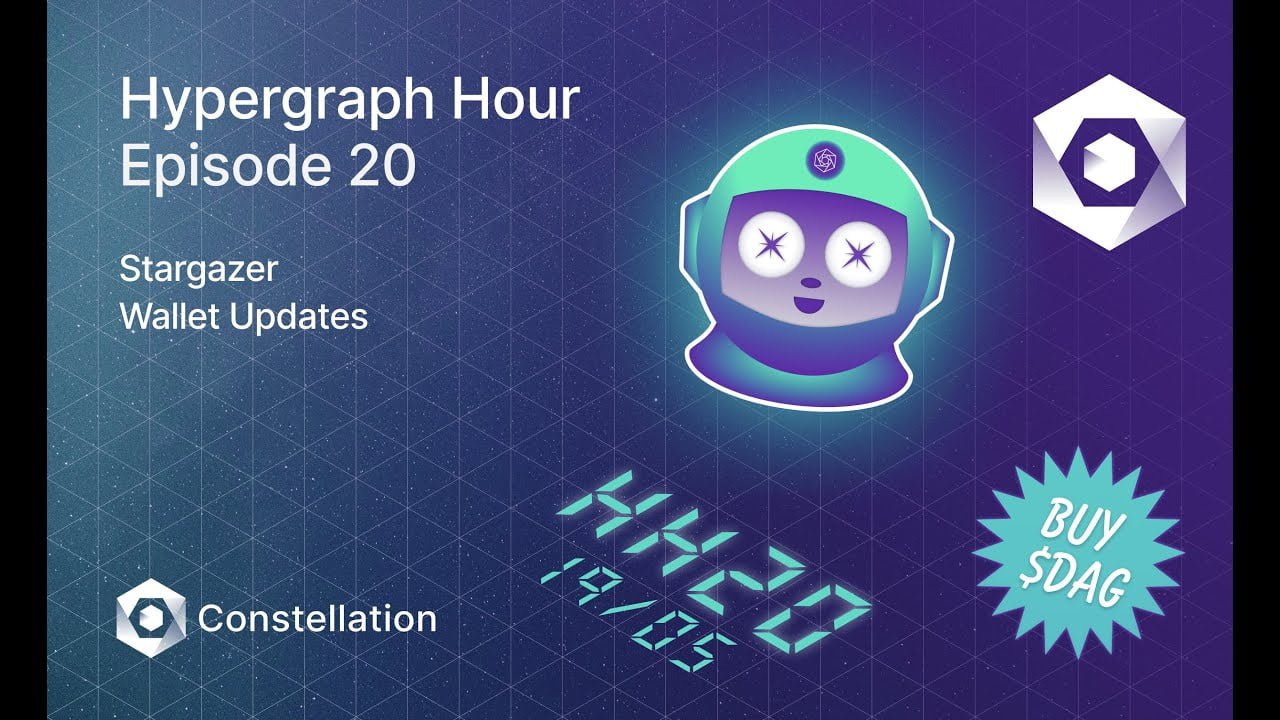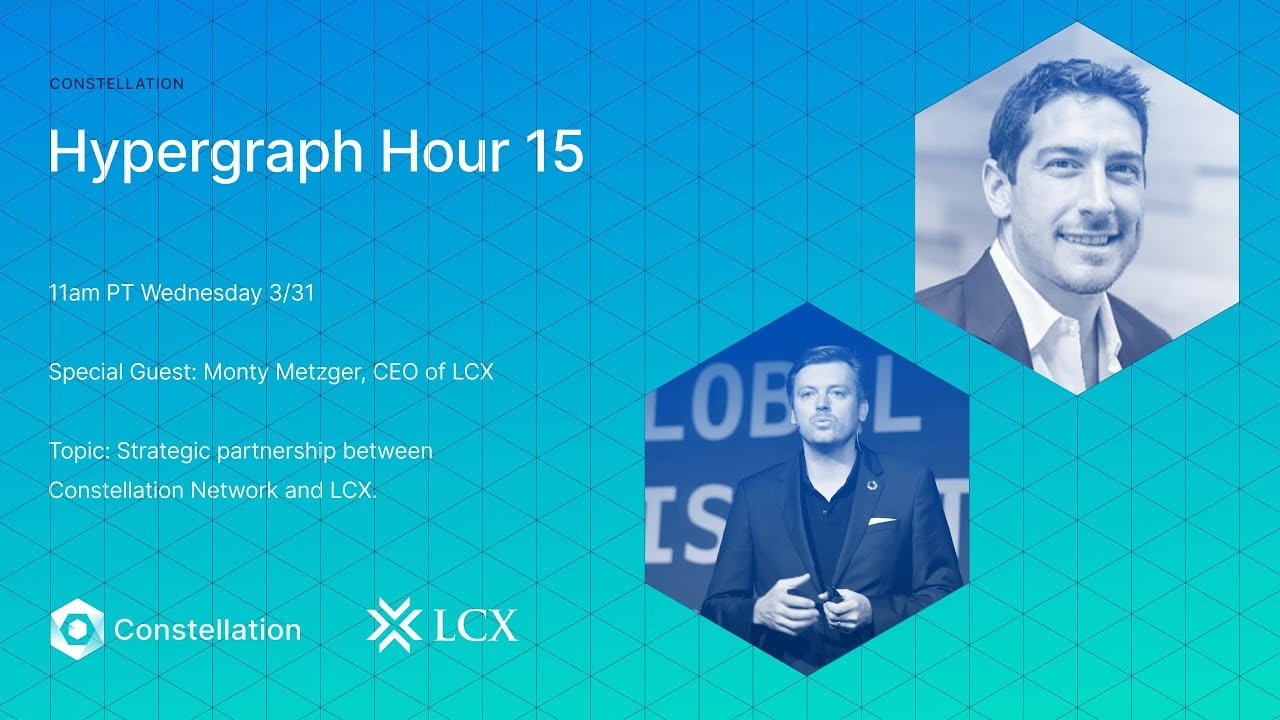Video:
Podcast:
Constellation Networks Hypergraph Hour Episode 2: A Deep Dive
In the second episode of Constellation Networks’ Hypergraph Hour, the team delves into a variety of topics, including the future of their project, the role of state channels, and the importance of token economics. The conversation is led by Wyatt Meldman-Floch, the CTO of Constellation Networks.
State Channels and Their Role in Infrastructure
Wyatt explains that state channels are like separate island states with their own rules and regulations that can still transact with one another. They are designed to be a new communications protocol that can create a verification chain about all the actions in a network. This is a significant departure from Ethereum, which Wyatt describes as a black box that cannot use consensus on user-defined data types.
State channels can oraclize off-chain data and perform consensus on that data. This means that they can guarantee the origin of data and perform consensus on the state of some type of physical system or the state of data in transit. This is a game-changer for industries like tax regulation and telco, where there is a lot of optimization to be had.
The Future of Constellation Networks
Wyatt also discusses the future of Constellation Networks, mentioning a refactor of their constellation nodes and the re-implementation of the initialization of their constellation node. This is expected to happen throughout Q1 of 2023, and once that’s done, they plan to add features that connect to DeFi.
The team also hints at other projects that will be coming around the same time, creating an ecosystem of different networks all running different microservices.
Token Economics and Generative Economics
Wyatt introduces the concept of generative economics, which he proposes as a generalized framework for creating token economies in the future. The goal is to decouple the way projects are created and governed from a fixed token supply and to tie the value of a state channel directly to the performance of node operators.
He also mentions a new domain-specific language they’ve created called Babel, which is meant to be an interface for their HTTP and a potential solution for creating lossless compilation.
The Lattice Exchange
The Lattice Exchange (LTX) is mentioned as a project that will be using state channels in its full phase three launch, slated for the end of Q1 or early Q2 of 2023. The LTX is a smart contract that does the DeFi bridge, and developers will be able to interact with it via the ERC20 component.
Streaming Consensus
One of the most exciting developments Wyatt mentions is the concept of streaming consensus. This allows a stream of information to be processed and run consensus rounds in parallel. It’s a game-changing development that Wyatt describes as his “white whale.”
Community Engagement
The team emphasizes the importance of community engagement and encourages the community to help tell the story of Constellation Networks. They plan to produce more videos explaining why Constellation matters and how it can benefit the community.
In conclusion, the second episode of Constellation Networks’ Hypergraph Hour provides a deep dive into the project’s future plans, the role of state channels, and the importance of token economics. It’s clear that the team is pushing the boundaries of what’s possible in the blockchain space and is committed to creating a new layer for the internet.



